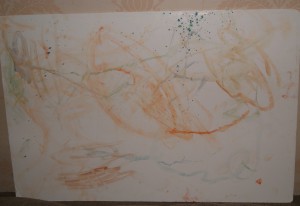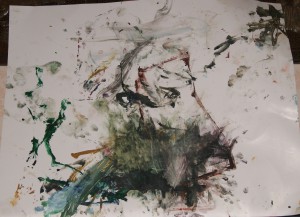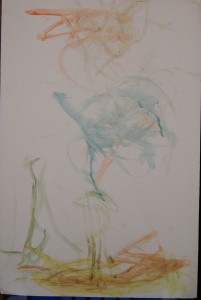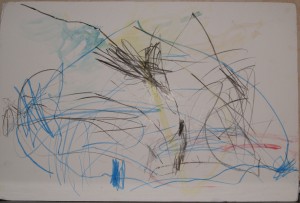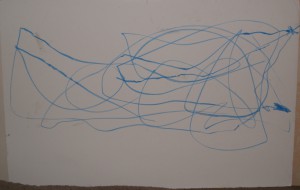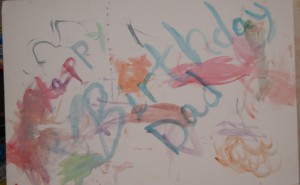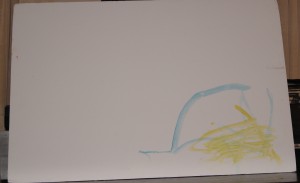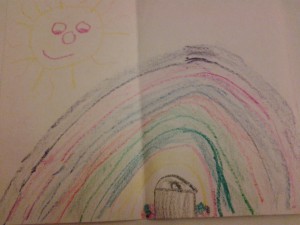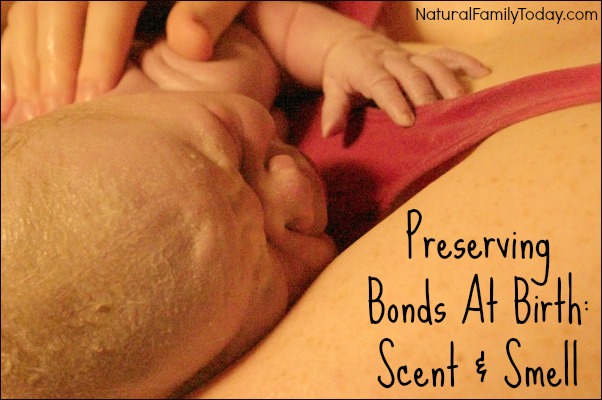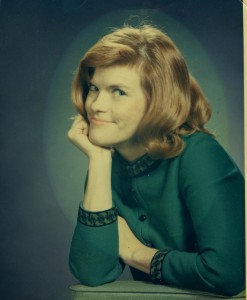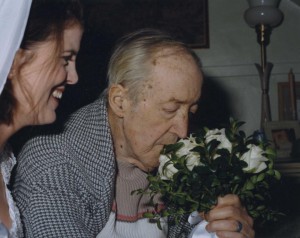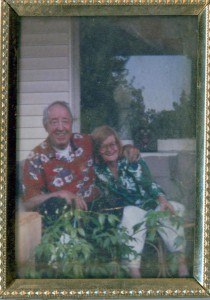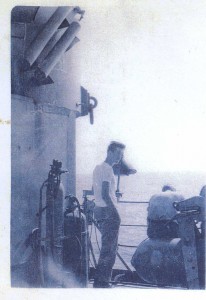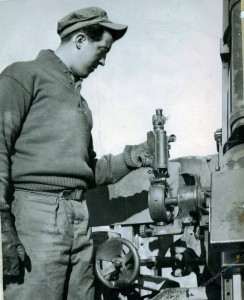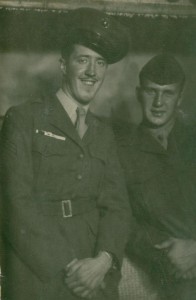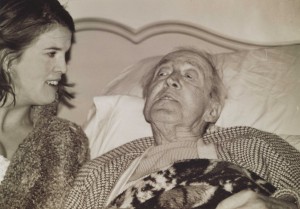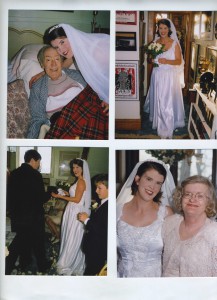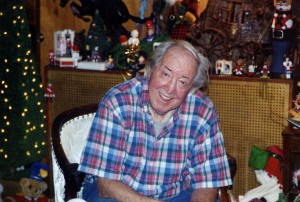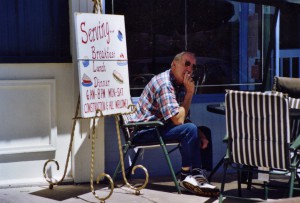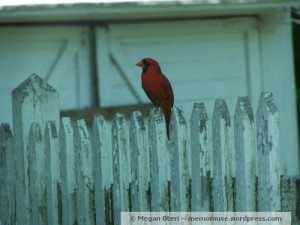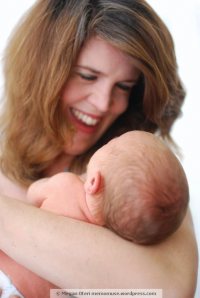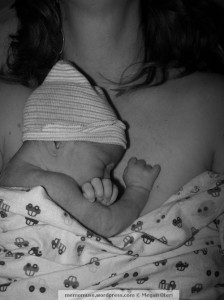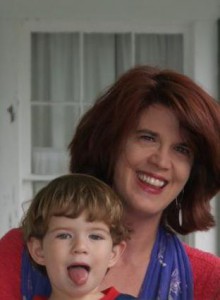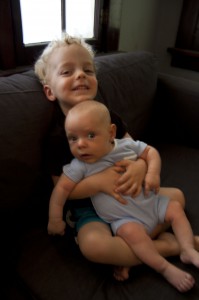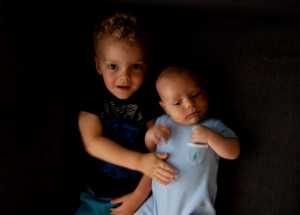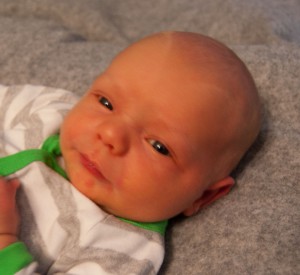I had a miscarriage when I was 24. It was one of the most devastating events of my adult life.
For three months, I was sick. For three months, I planned out the entire future of this little being nestled safely in my womb. I even had a name: Rose Marie Elizabeth. Then, at a routine doctor’s appointment, it happened. She couldn’t find the heartbeat.
I was told not to worry, “It’s not uncommon, but just to be sure, let’s schedule you for an ultrasound.”
“But.” I hate that word. It’s always a caveat to other things. It’s hardly ever a good sign. I love you, but … I brought this for you, but … Check’s in the mail, but … Things are fine, but … ”
Off I went for my ultrasound. I was laying on the exam table with a blanket wrapped around my middle, wearing a too-big, generic hospital gown in a quiet room, tucked away from the main flow of the clinic.
I should have known.
The technician was very kind, very gentle, and sensitive to the news he was about to reveal. I had no idea how to read the images on the screen. I could see a sack, but it looked empty. His face told me what I wasn’t brave enough to ask. “I’m so sorry,” he said, “these things happen. There’s nothing you could have done. It’s not your fault.”
I don’t remember changing my clothes or walking out of the clinic, but I remember sobbing in the car as though my soul had been shredded from my body.
They told me that it could take up to two weeks for my body to have the miscarriage. I was in agony. My mind was tortured by the thoughts of what I was carrying around inside me. Of the life I had so lovingly planned just a few moments before. Now it was nothing but shambles around my feet. Everything felt broken: my mind, my body, my life, my baby, my dreams.
Two weeks later, I felt the first pain. It came slowly at first, very far apart, and just like regular labor, it gradually increased in speed and strength and length. I drove myself home from work but shouldn’t have. I don’t remember anything but thinking I was going to die.
It was just like giving birth except there would be no baby at the end of all the work.
I couldn’t do it. I was literally a shaking lump of tears on the bathroom floor. Somehow, I managed to get the phone to call 911. The woman on the other end was soothing, and I felt safer.
I ended up in the hospital Emergency Room that night. Unfortunately, the nurse was cruel and unsympathetic to what was happening to me and the obstetrician was busy with happier things upstairs to pay much attention to me. Two residents took pity on me, giving me a warm blanket and a shot to numb the pain. They offered simple but powerful kindness by touching my knee and stroking my hair as I cried. Twelve hours later, it was over. The obstetrician examined me, and I was sent home.
I had no idea how to heal. Is time my only option, because sitting in that murk and disillusionment would have killed me.
I decided to go to the book store to find a book about miscarriage. I was standing in the grief section trying to find something that would work for what I was feeling. Nothing. I went to the death section. Nothing. I went to the self-help section. Nothing. There was nothing for me. I’ve never felt so completely alone. Dejected, I sat on the little stool meant to help people reach for the higher shelves and just cried. I cried for my baby and for me and for my hopes and dreams that seemed so very far away. And I cried, because I was angry that happiness had been ripped away from me.
As I was leaving the bookstore, I passed by the baby section—where all the “new mom” books are, the cute baby faces in cute baby clothes, where all the happy families hang out. At first, I was going to keep walking because the thought of looking at what I had just lost threatened to unravel my last thread of strength. But something inside me told me to be brave, to just look up, to look at the titles, that it’ll be OK.
I picked up a book about natural pregnancy. It was called Immaculate Deception. I don’t know why I picked it up. Maybe it was the word “deception” since that’s how I felt. Or maybe it was “immaculate” because the word held a promise that better times where ahead. Whatever the reason, it was the book that would lead me to my two beautiful home water births. It was the inspiration for finding my power as a woman. It planted the seeds of expectation: that we all deserve a respectful birth which empowers us and celebrates our strength, within in a culture that respects our choices.
At the time, my miscarriage was one of the most painful events I ever went through. It took me months to physically recover and years before I recovered emotionally. But I believe everything happens for a reason, even our darkest moments, and if we can be brave enough to just look up, we’ll be fortunate enough to discover what that reason is and be better for knowing.
*Originally published in the New Baby 2012 edition of Attached Family. Click here to access past issues of Attached Family. If you are not already an API member, you can join now for free by using the link provided on the Attached Family page.

